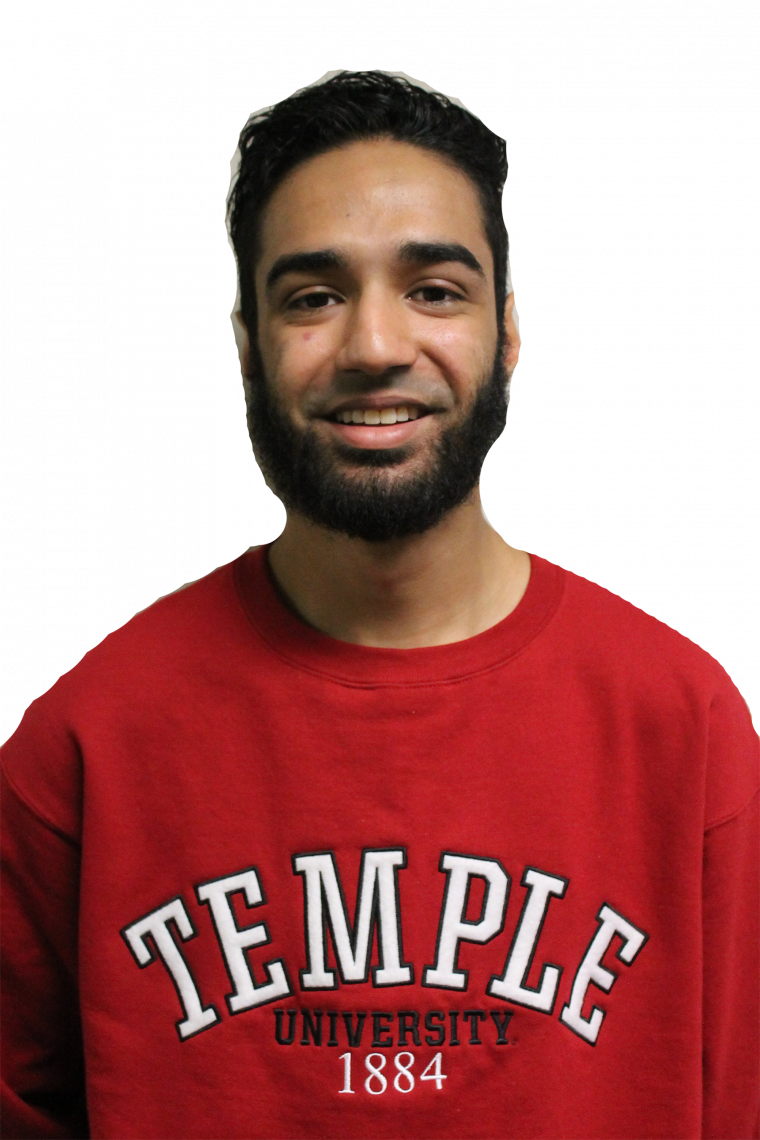

My favorite TV show when I was in high school was “Empire,” and my absolute favorite character on the music-themed drama was Jamal Lyon.
As a successful gay, Black R&B singer, Lyon was a powerful presence for me to relate to as I dealt with my own coming out. I instantly identified with the character.
Played by actor Jussie Smollett, Lyon endures a unique set of challenges and discrimination from people both inside and outside of his communities. Lyon is a visible gay Black man, which makes him a target for not just racism or homophobia separately, but simultaneously.
This character signals the unique challenges queer people of color — especially queer Black people — endure. And this intersectionality has been frequently, and wrongly, ignored in public conversation about the recent hate crime against Smollett.
Smollett, like the character he plays on “Empire,” is a gay Black man. He was attacked late last month — targeted for the intersection of these two identities. On Jan. 29, two white men allegedly assaulted Smollett in Chicago’s Streeterville neighborhood, pouring what was likely bleach on him, shouting homophobic and racist slurs and even tying a noose around his neck.
This attack came one week after Smollett received a letter with bigoted hate speech and an unknown chemical inside.
Most mainstream media outlets have neglected to include this intersectionality in their coverage. A tweet from TMZ’s initial reporting on Smollett’s attack referred to it as exclusively “homophobic.” Similarly, a Jan. 29 police statement sent to reporters about the hate crime refers to it as a “possible racially-charged battery and assault.”
We can’t ignore racist or homophobic motivations for the attack. That would ignore a part of Smollett’s identity.
A 2018 survey by Stonewall, a charity for LGBTQ equality in the United Kingdom, found that 51 percent of LGBTQ people of color experience discrimination from white queer people because of their race. In the past, “Empire” touched on the homophobia that exists in communities of color.
This is why failure to point out the intersection of identities in the Smollett conversation is dangerous. We can’t frame race and sexuality as being mutually exclusive.
“A lot of times the queer community doesn’t acknowledge us, and for me, the Black community also has a hard time struggling with queer people and can be very homophobic at times,” said Layah Taylor, a freshman English major and a lesbian Black woman who participates in social justice student organizations, like Queer People of Color, the Black Student Union and the Feminist Alliance.
“These two communities that I’m a part of…have a hard time communicating in a way that lets people who have this intersection of identities feel comfortable,” Taylor said.
We need to make an effort to understand the unique challenges people with this complex intersection of identities have to experience. Simply existing as a queer person of color places a person at a greater risk to be targeted for hate crimes, discrimination and harassment.
Of all the anti-LGBTQ homicides in 2017, 60 percent of victims were Black, according to the National Coalition of Anti-Violence Programs.
Anne Balay, a gender, sexuality and women’s studies instructor, has studied and written books on the complex intersections of race, sexuality, class and employment. The hate crime against Smollett is demonstrative of a larger trend of violence against queer people of color, she said.
“One of the unique challenges of being a queer person of color is being incredibly visible,” Balay said. “To be a racial minority is to be automatically visible. It’s unhidable, it’s unchangeable. And this is important when the main goal of a hate crime is to make that group scared, to get them to self-police and feel anxiety when they’re in public.”
Taylor was shocked and upset to hear about the hate crime against Smollett.
“I was kind of taken aback by the whole situation, and I felt at a loss for words,” Taylor said. “It was a part of a larger trend of queer people, especially queer people of color, being attacked on the streets.”
“In both communities, you see an isolation of it being perceived as an issue of either identity alone when really we have to talk about the intersectionality in why this is happening,” Taylor said. “He is gay, and he is Black. Those two things make somebody very targeted, no matter how famous or how rich you are.”
Smollett’s attack was not motivated by exclusively homophobic or exclusively racist intentions, but rather it was a blend of the two. Let’s address this intersection when we talk about what happened. After all, both communities were hurt after this attack.



Tyler Perez the liar. Or just a dope who fell for the Smollett hoax.
Jussie Smollett is fake news. This never happened, and you wrote this as if everything he and the media reported was factual. Look at the evidence. It’s so painfully obvious for anyone with an iota of intelligence.
“IT’S TIME FOR THE CHICAGO PD TO CHARGE JUSSIE SMOLLETT FOR FABRICATING A HATE CRIME, for the evidence demonstrates the attack, as alleged, never happened.”
https://news.grabien.com/story-its-time-chicago-pd-charge-jussie-smollett-fabricating-hate?fbclid=IwAR1vVo4GaxGyZtk9U5QqXVxfNbxQgwuZ3iObSB8Z9Z49hltesVrNr-Vf7xU
Perez should take Remedial Journalism 101 before being permitted to compose another column, for it’s counterproductive [even for his cherished ideologies] for him not to have researched the database before trumpeting preordained conclusions.
In follow-up of the above, note that “2 potential suspects under arrest after attack on ‘Empire’ star Jussie Smollett: Police.”
https://www.goodmorningamerica.com/culture/story/jussie-smollett-case-detectives-probable-men-surveillance-video-61099330?fbclid=IwAR2iDxVnYWj1FnrW0n0ALp4buIKovRJGnhw212eaqg43NigOyvWL8xHjhbw
To its credit, the Temple-News published my initial comment.
all of you bitches are mad & homophobic…GO TYLER! LOVE YA
retraction overdue
Hi Mr. Sklaroff, this is Tyler Perez, the author of this column. I appreciate your feedback and thoughts, and I’m actually working on another column about the Smollett case in light of recent news updates. How would you like to talk for a few minutes over the phone? Feel free to reach out at tyler.perez@temple.edu